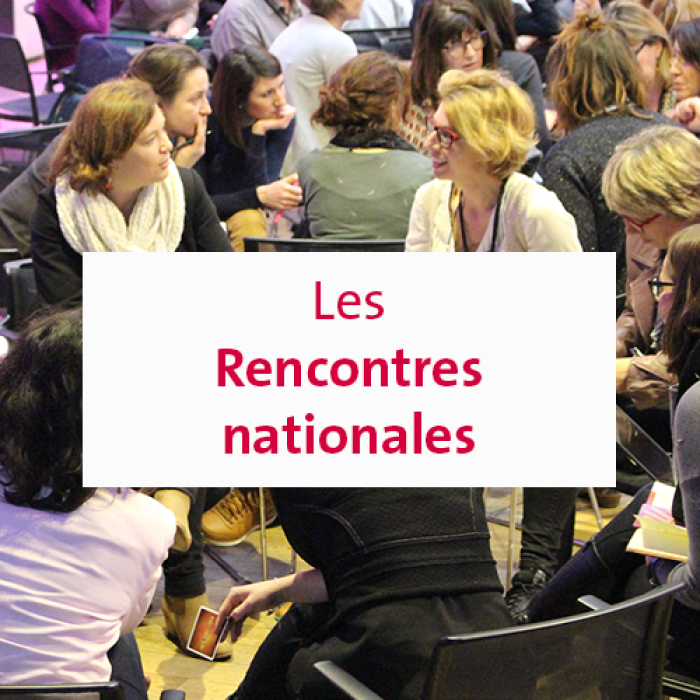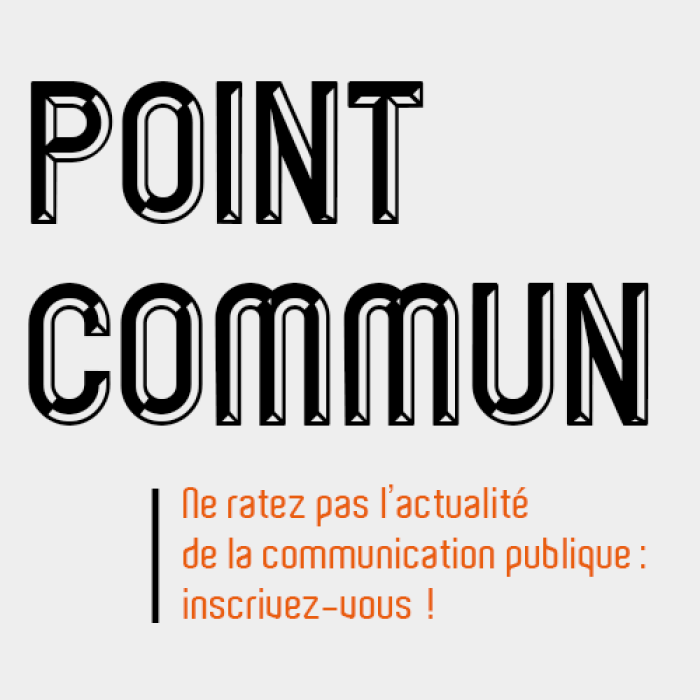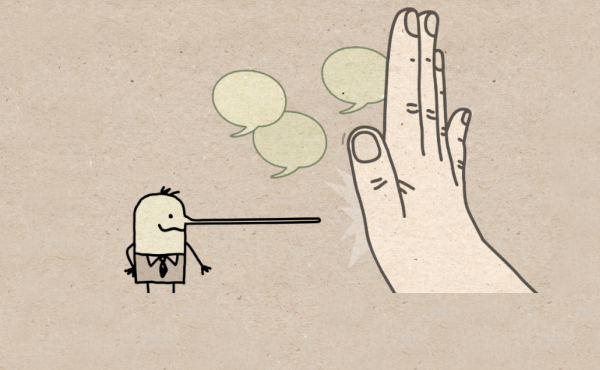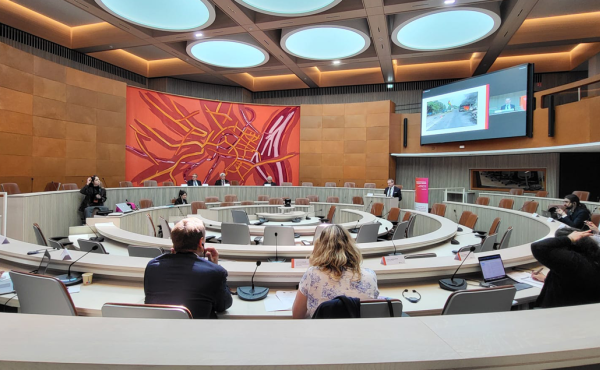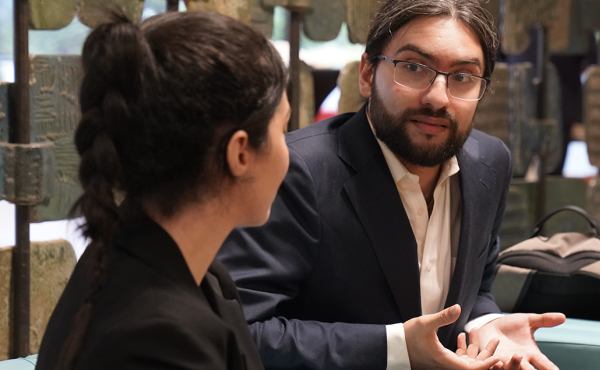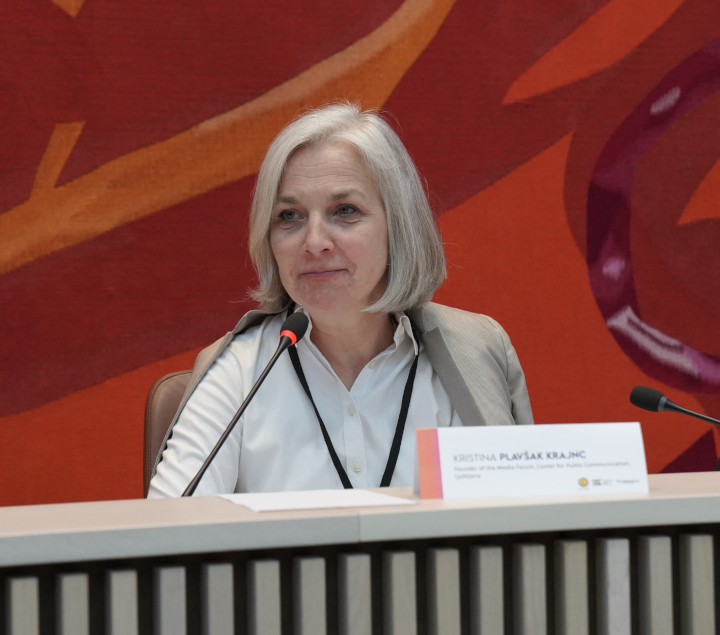
Public communication and democratic resilience
For Kristina Plavšak Krajnc, independent international correspondent and director of Media Forum, the key to strengthening democratic resilience lies in effective public communication. With more than 20 years of experience, she works to raise professional standards in the communication of public institutions and raise awareness of good practices.
Kristina Plavšak Krajnc is the director of Media Forum, Center for Public Communication, an NGO based in Ljubljana. She was also a director in the Communications Office of the Government of Slovenia and worked for the Council of Europe. Currently, she collaborates with international organizations such as the OECD to promote quality public communication practices in Europe and beyond. Commonality met him during the second international seminar organized jointly by Cap’Com and the Venice Club, with the support of the City and the Eurometropolis of Strasbourg, on May 23 and 24, 2024.
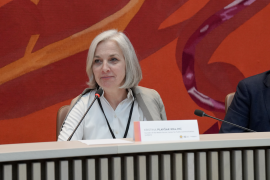
Commonality: You are established in Slovenia, but your action nevertheless falls within the European area.
Kristina Plavšak Krajnc: Yes I lead Media Forum, Center for Public Communication in Ljubljana. It's been funded more than 20 years ago. It's a small NGO, more or less one woman band. But through the years we've done many projects, in particular in stressing the importance of professional standards in public communication, meaning communication of the public institutions, but also doing some review of media practices, in particular media regulation, advertising.
I'm currently working with international organizations, in particular with OECD, trying to up-build the practices of public communications, not only in Europe, but also around. They had a project in Jordan and in Egypt. I'm a very, let's say, very dedicated member of Club of Venice […]. I spent like more than 20 years in government institutions, but also in international organizations.
Commonality: You were a moderator and hosted one of the conferences at the international seminar in Strasbourg. What did you learn from it?
Kristina Plavšak Krajnc: I keep repeating it at every Club of Venice, that despite the challenging times and advances in technology, media, and whatever, that we should go back to the basics of our democracy. I'm speaking about the public communication of public institutions, that's why we're here. Speaking, finding proper ways to not only to communicate to our citizens, but to try to engage them, mobilize them, and also somehow to respond to them, because it's in our position and function, we shouldn't, you know, act the same way as some other actors in private business or corporate business should in this sense there is a particular corpus of practices, professional practices and knowledge that should be used in public institutions. In constitutional democracy we are responsible to our citizens and we should follow the common good, which is less and less present. Politicians copy more and more the worst practices because there's such a strong competition either from the side of the ones who are like spreading negative narratives or the ones who are like working in the corporate world […].
So, we should stick to our own way because otherwise, you know, the biggest problem is basically the distrust. The worse we do or the more we work on a same level as other actors, the less trusted we are. And in the long term it's catastrophic because it's not just people are distrusting politicians or institutions, they are also distrusting justice or even furthermore police or whatever.
We need to connect more with civil society, media, people, academic institutions, and work hand in hand with them. Likewise, at the international, regional, local level...
With all the trends of illiteracy, people read less. On the other side, there's like inflation of information, of sources, people cannot really tell. And in this respect, of course, it exploded and at the end of the day, it's dangerous, you know, for health, for people's life [editor’s note: see Covid episode]. And you can, on the other hand, you can also not switch it back immediately. It takes long time and systemic effort and cooperation. And that's why we are here. It's on different level because the governments didn't do their work and of course, also the resources, though it seems that with all the technology are limited, you know, we are stuck somehow, we are in the dead end and that's why we have to connect more to civil society, to media, to people, to academic institutions, work hand in hand. Also, internationally, regionally, locally, it's be more people centered. We need actually in this high-paced, you know, society, information society, we need more reflection, more analytics also to invest more our intellectual capacity, not in this negative. I was just wondering, now how people with their reflection, vital intellectual capacity, they invest in something negative. But public institutions are responsible to keep on trying to respond in a proper way and also to communicate in a way that people would follow, in a clear, trustworthy, illustrative, visual, attractive way. So, they should simply try better. So that's why this seminar is so valuable, because it allows us to share our hopes and our doubts, and ultimately to keep our motivation.
We should go back to the basics of our democracy, particularly with regard to the public communication of institutions.
Commonality: In your opinion, what role should the European institutions play in the face of the evolution of disinformation?
Kristina Plavšak Krajnc: It's a tough question, but very important. We know about Russia, China, whatever, from so-called foreign agents, but also from within, because basically what we are like encountering now, and one should say it bluntly, that some national actors who are actually running at the European parliamentary elections, their basic tactics is to enter on the basis of a negative discourse, that everything is wrong, but basically when they enter, they do this so-called march through institutions. So, they would take over kind of the institutional policy from within, which is even more dangerous, because before it was more or less being in opposition to institutions. And I cannot be optimistic in this way, you know, all trends show that such candidates will get much more support than in the last parliamentary election [interview conducted before the elections of June 9, 2024].
And on the official side, also the mainstream institutions, the parliament or the commission, they’re not doing a good job, because they're not listening well and they're not putting themselves in the shoes of the voters. In particular, what my particular concern is the first voters, young people who go for the election for the first time. Being aware that, first of all, European Parliament plays a major part in, formulating our direct environment where we live, more than 80% of decisions that influence our life and regulations are passed by the European Parliament. Second, European Union is not something external, it's internal, we are part of the alliance […]. You know, in particular, you have like a very concrete benefits, Erasmus, traveling around, common currency. So, I think this shouldn't be like self-evident, because it's like with human rights, it's an everyday work and long-term effort with falls.

